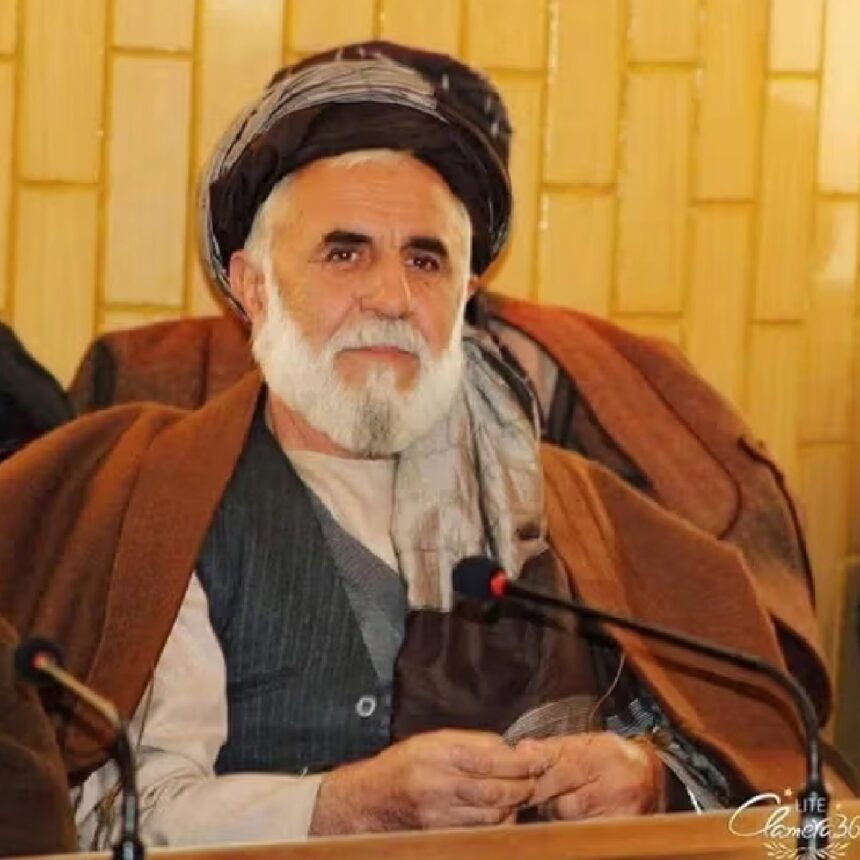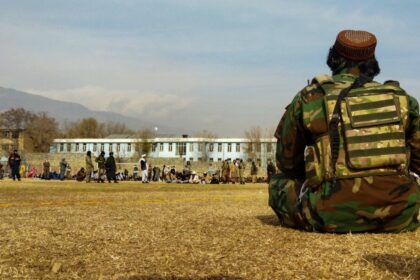RASC News Agency: In yet another disturbing revelation of internal lawlessness and factional violence under Taliban rule, local sources in Samangan province report that six individuals have been arrested in connection with the abduction and brutal killing of Haji Akbar Niazi, a well-known tribal elder and chairman of the People’s Council in the Khuram and Sarbagh district. Among the detainees are three members of the Taliban’s intelligence apparatus (GDI) and a senior Taliban security official, further fueling public outrage over what many now describe as a regime that harbors and protects criminal elements within its own ranks. According to multiple eyewitness accounts and local sources, Haji Niazi was abducted from his home in Aibak nearly three weeks ago by armed men identifying themselves as Taliban intelligence agents. His lifeless body was handed over to his family two days later, on May 9, by officials at the Aibak provincial hospital bearing signs of torture and execution-style killing.
Those reportedly arrested include:
Ghulam Sakhi, infamously known as “Osama”, a Taliban intelligence operative, Abdul Basir Seerat, deputy head of the Taliban’s Second District Intelligence in Samangan, Naqibullah, the head of the Taliban’s workshop division in the Samangan provincial police, Abdullah, another active member of the Taliban, And two civilians, Jawid and Zainullah, suspected of aiding the crime. All individuals are said to have had close ties with Mawlawi Jalal Hanafi, the former commander of the Taliban’s brigade in Samangan a man previously accused by residents of abusing power and orchestrating covert operations against civilian leaders.
The vehicle allegedly used in the abduction has been traced back to Abdul Basir Seerat and is currently being held by Taliban security forces, though it remains unclear whether this investigation will proceed beyond mere appearances. What has especially shocked the local population is that, despite clear evidence and initial arrests, the suspects were released shortly after their detention. Only after intense pressure from tribal elders and local community leaders were they re-arrested and placed under nominal supervision a pattern that reflects the Taliban’s now-common tactic of deflecting accountability under public scrutiny. Even as more than a month has passed since the assassination, Taliban authorities have failed to issue any official statement. Their silence has only intensified public suspicion that this murder was not the result of a rogue operation, but rather part of a deliberate campaign of intimidation against independent tribal leadership one that aligns disturbingly well with the Taliban’s strategy of consolidating absolute control through fear and selective violence.
Haji Akbar Niazi was not merely a tribal elder; he was a pillar of stability, known for his community arbitration and efforts to protect civil society in a time of national collapse. His death is not just a personal loss it is a chilling symbol of the Taliban’s war on independent leadership, and its desire to dismantle traditional power structures that operate outside of its brutal, centralized grip. This case is only the latest in a growing list of extrajudicial killings and enforced disappearances being quietly carried out under Taliban oversight, often by members of their own intelligence and security networks. Human rights observers note that the group has transformed Afghanistan’s intelligence apparatus into a tool of internal oppression, with many agents acting more like gang enforcers than national protectors.
International legal experts warn that such targeted political assassinations especially when committed or facilitated by state actors amount to crimes against humanity. Yet, in Taliban-controlled Afghanistan, justice remains a distant illusion, and impunity reigns for those who wear the regime’s insignia. As long as the Taliban continue to enable, protect, and integrate criminality within their own ranks, Afghanistan’s civilians, tribal elders, and civil leaders will remain under direct threat. Haji Akbar Niazi’s murder is not an isolated act of violence it is part of a systemic pattern of terror, one that exposes the Taliban not as a governing body, but as a factionalized militant regime incapable of justice, and unwilling to protect the very people it claims to rule.






